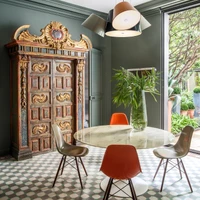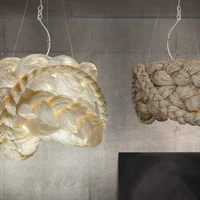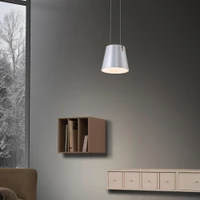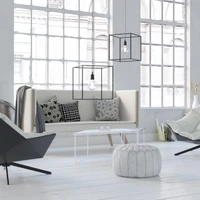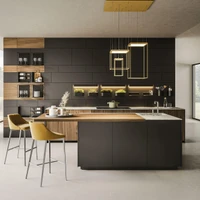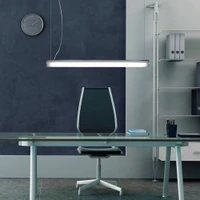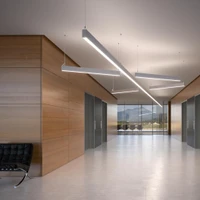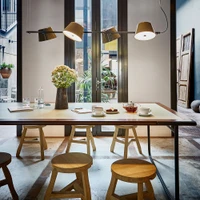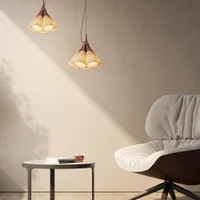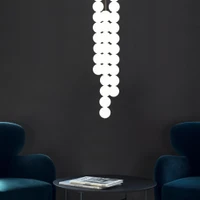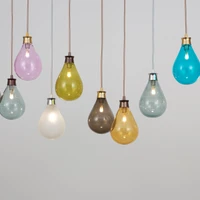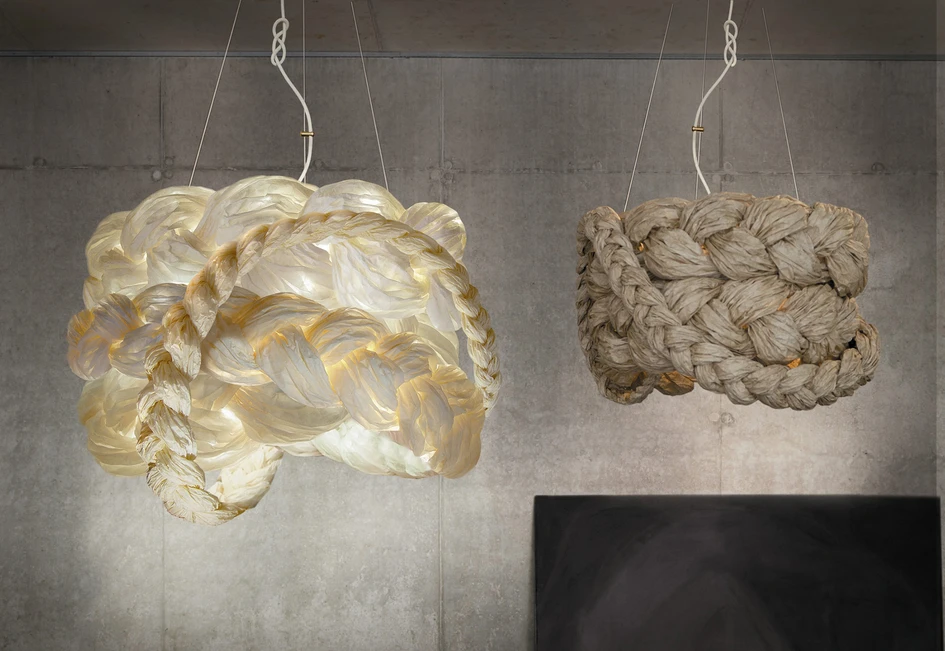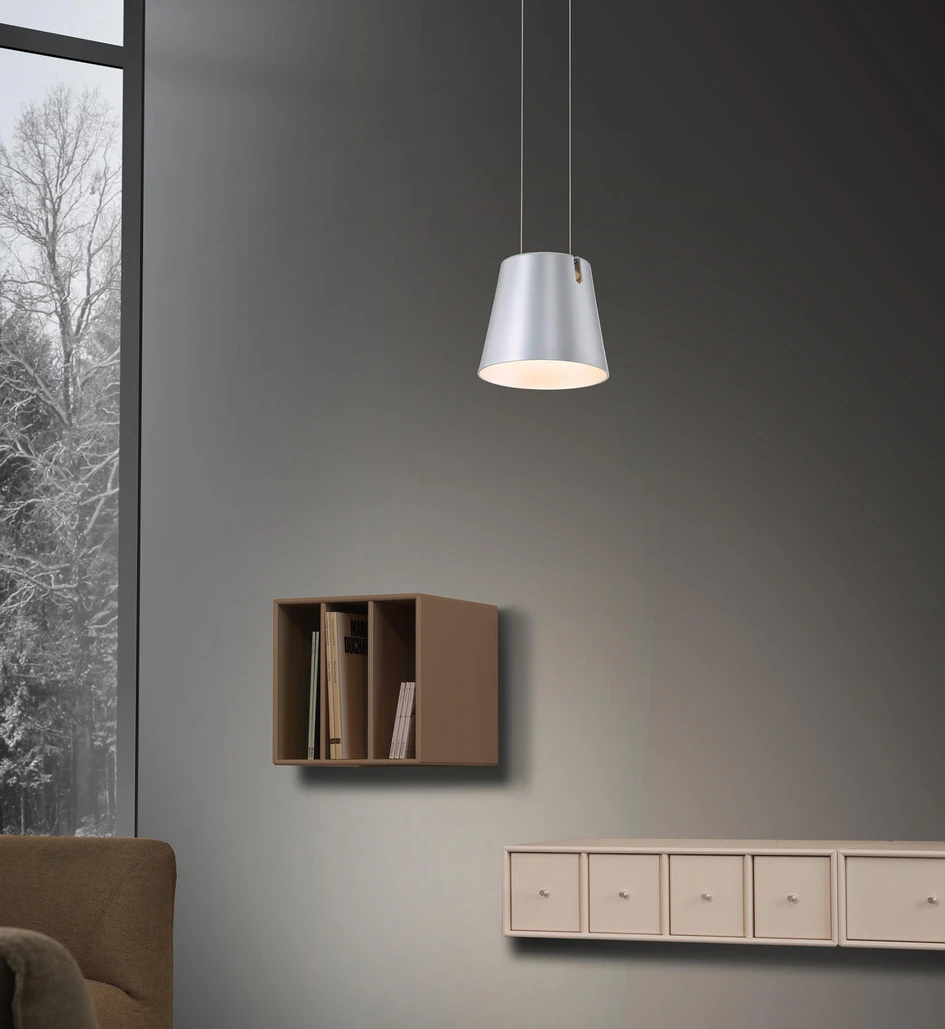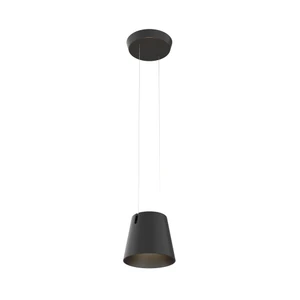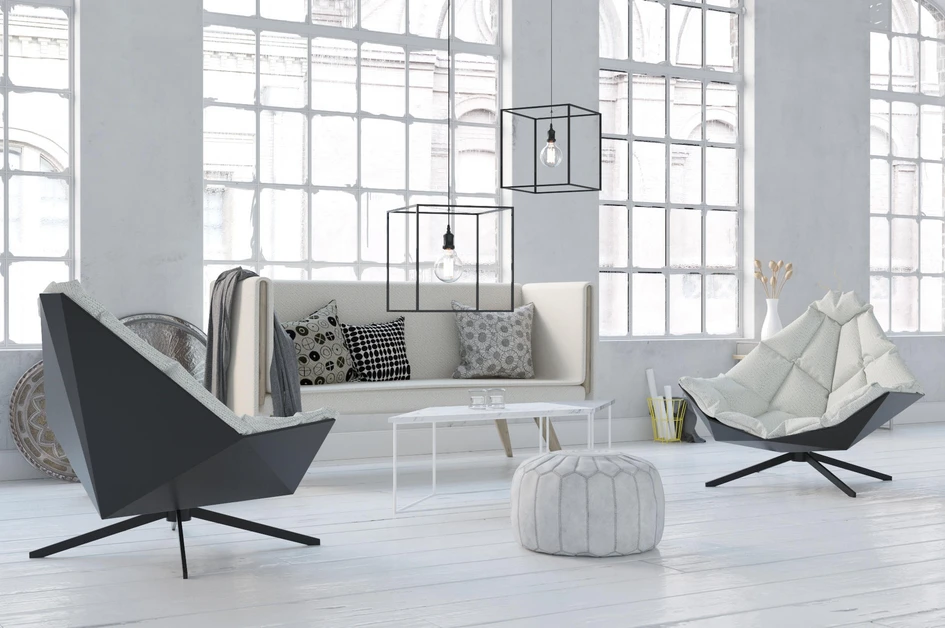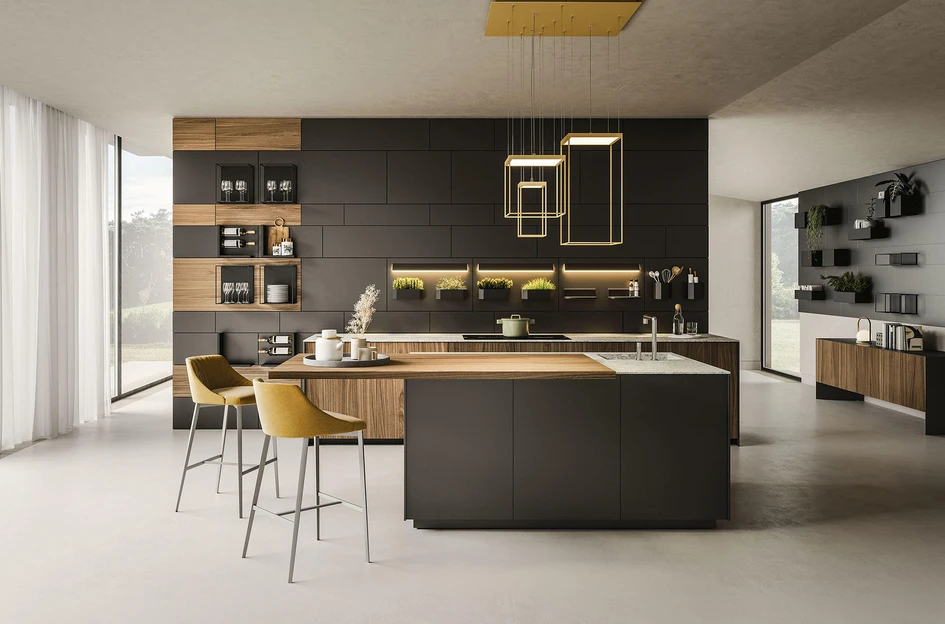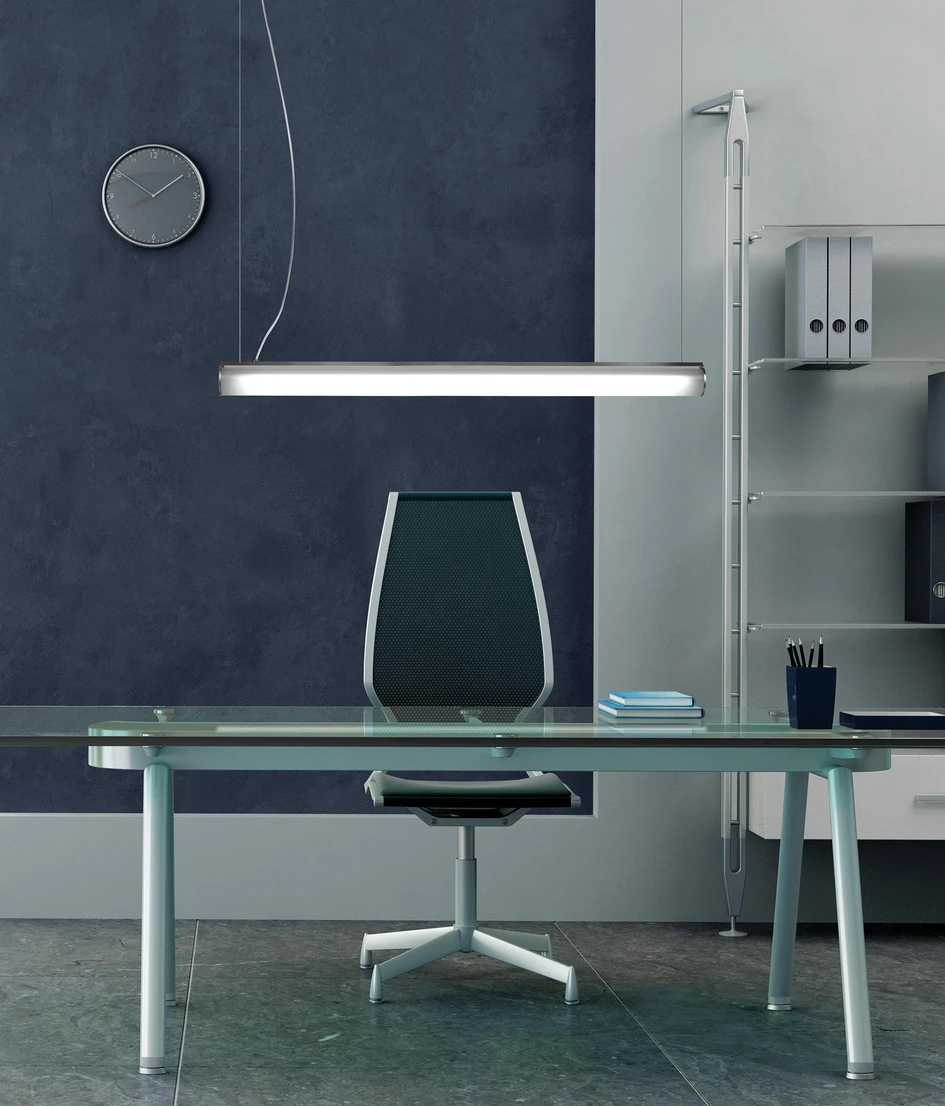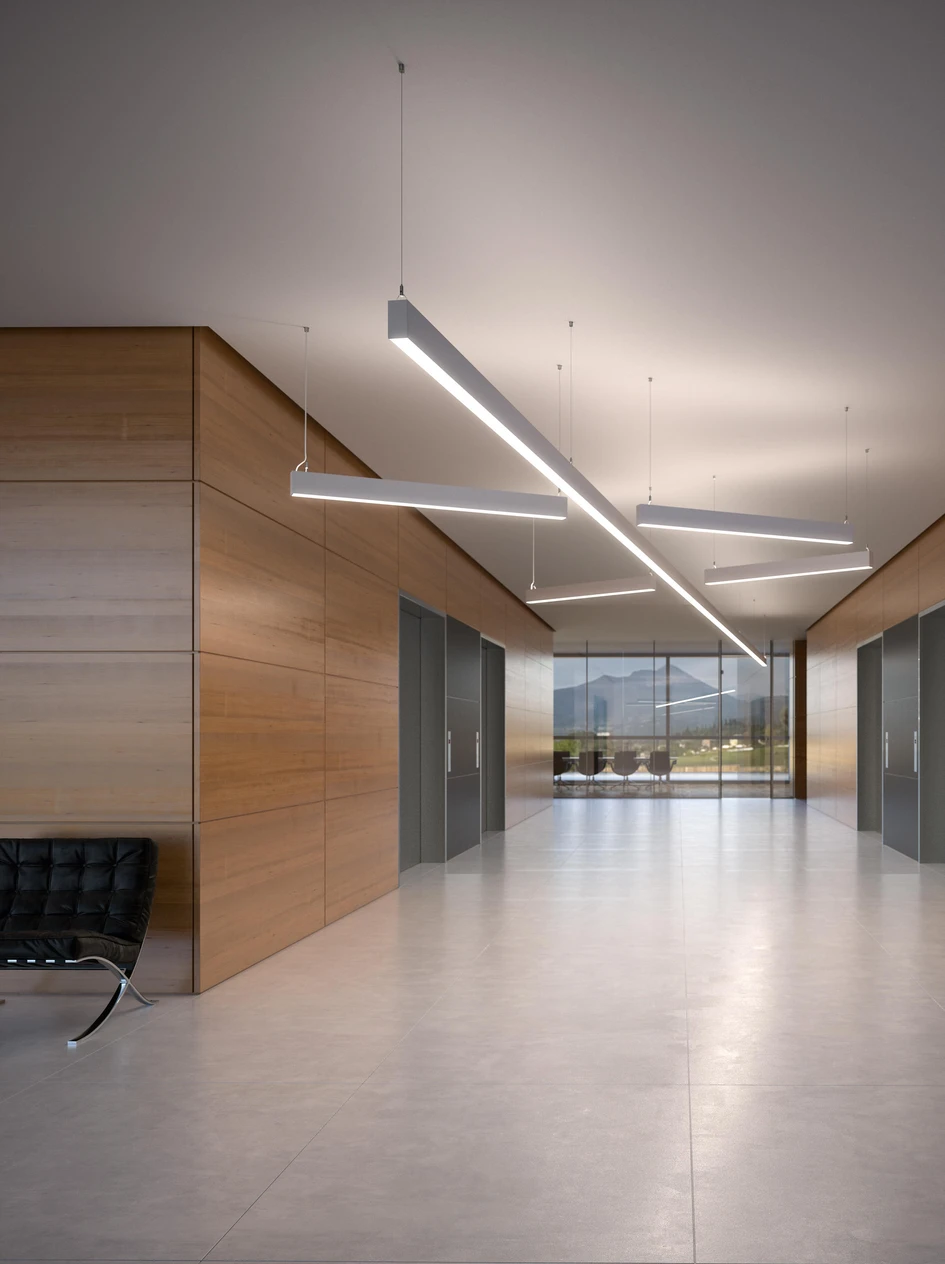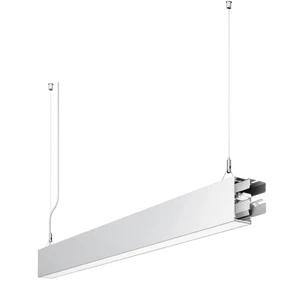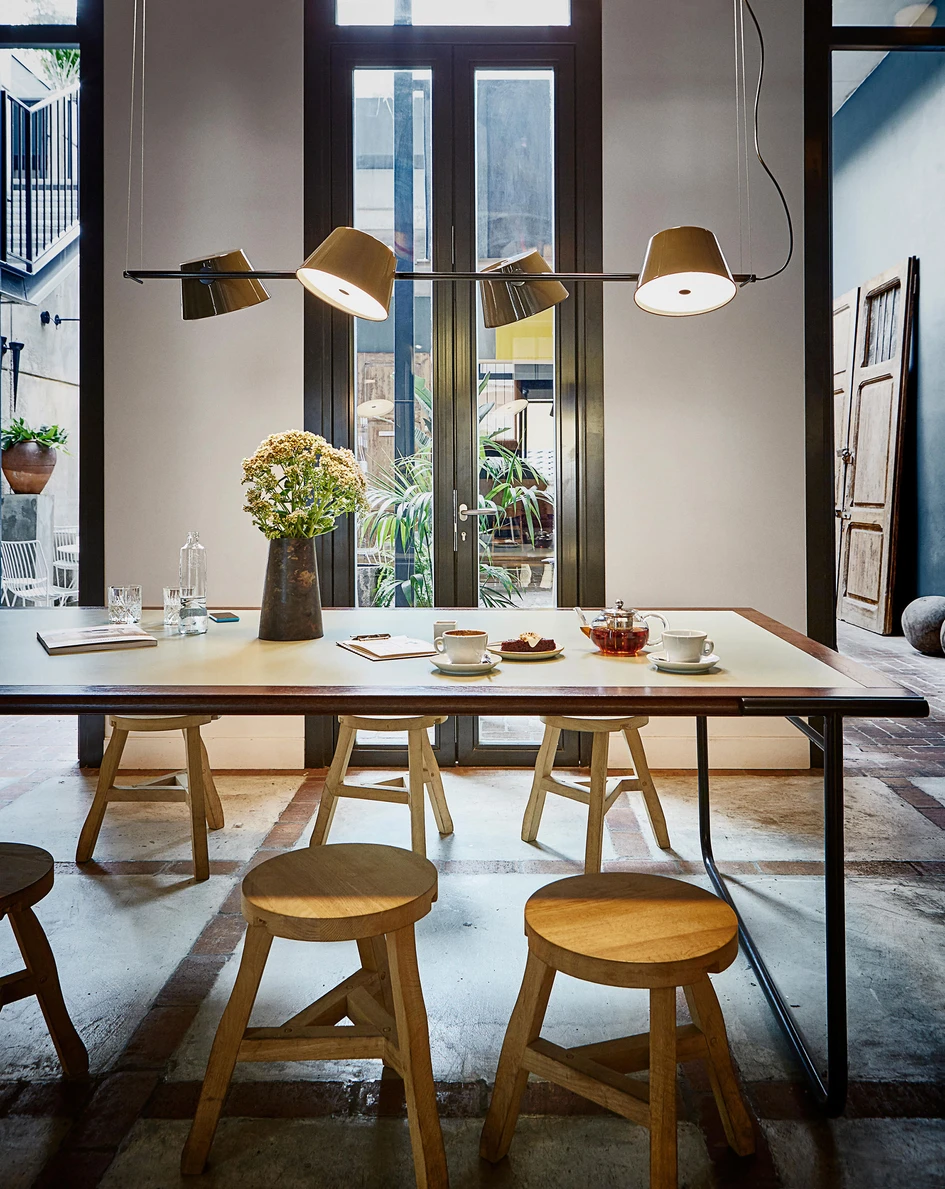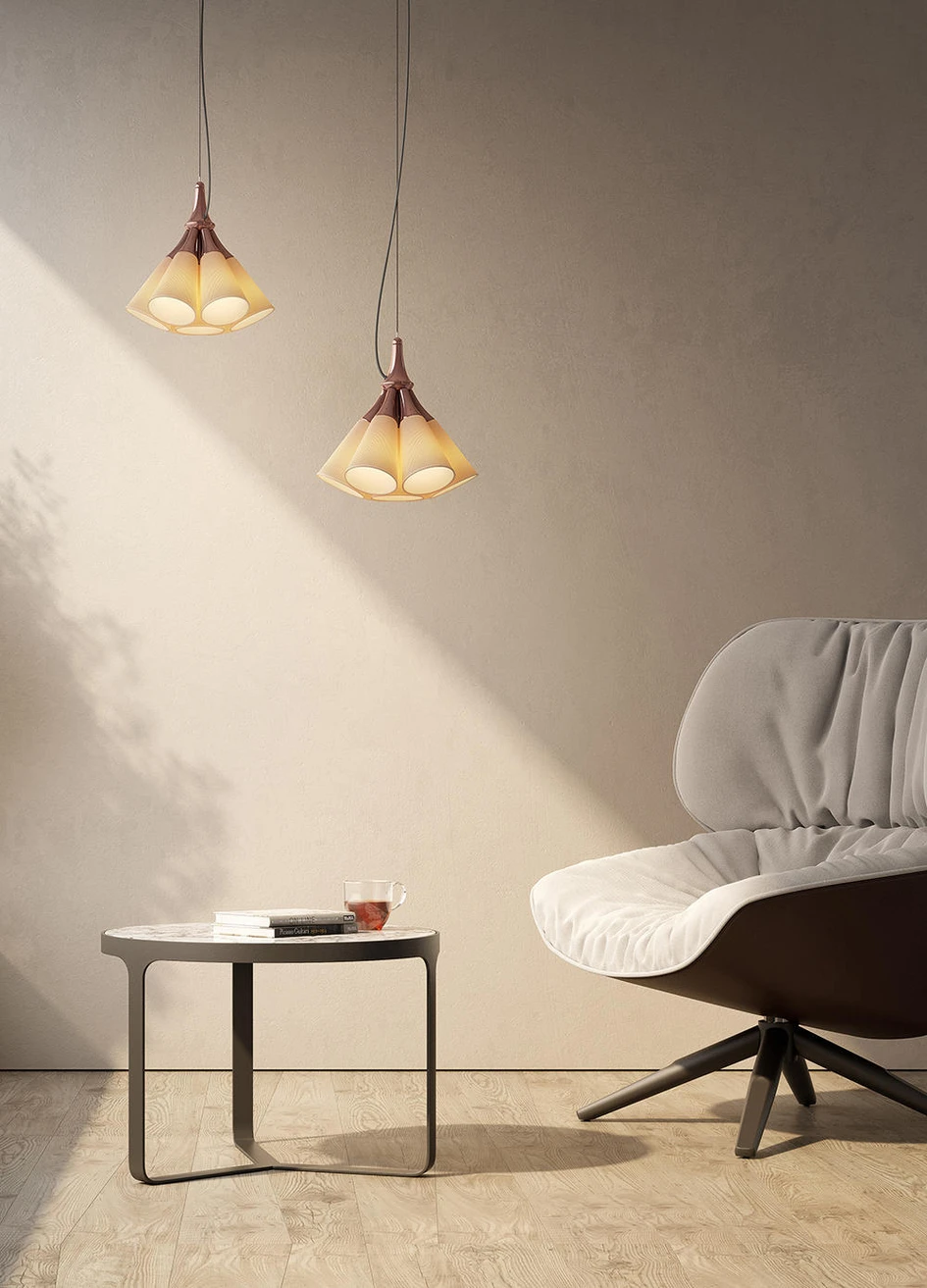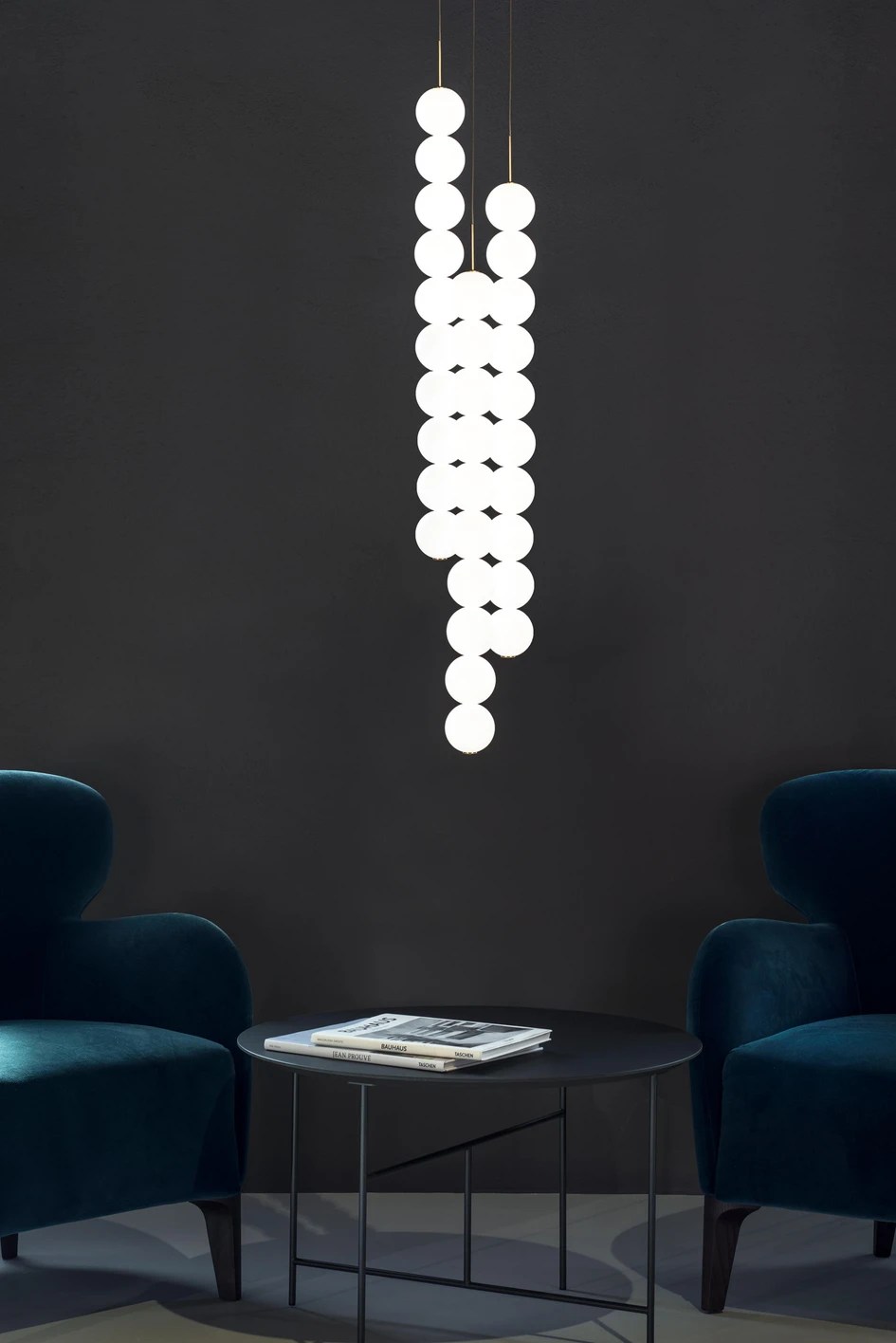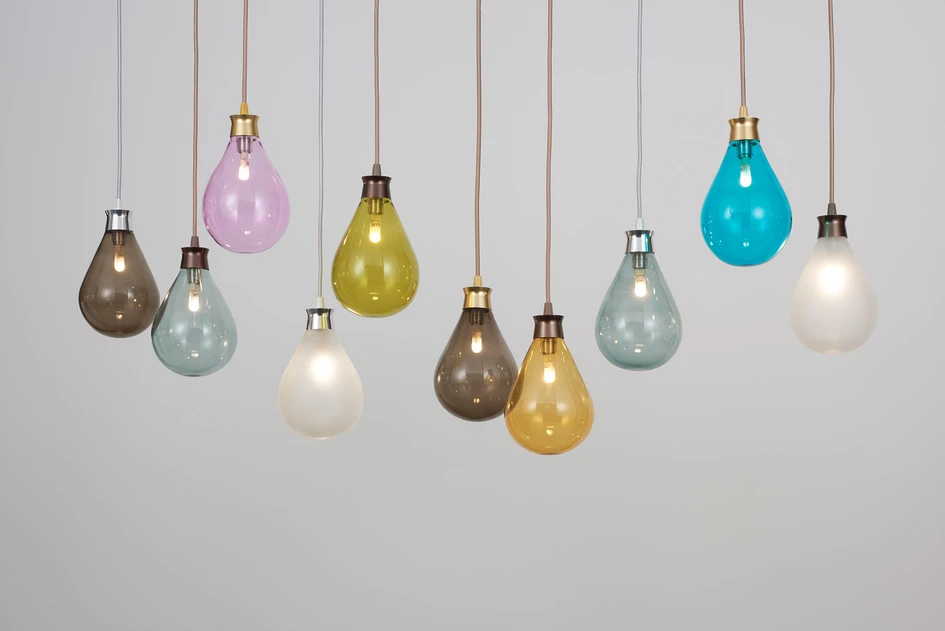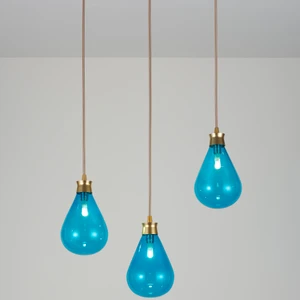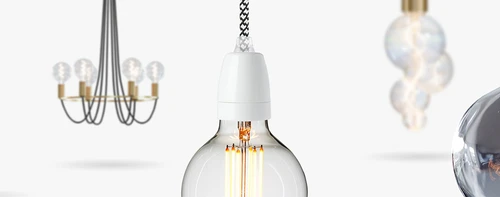How to choose the right type of pendant light: examples and inspiration
It’s easy for enthusiasts and even professional designers to be dazzled by the blinding array of lights in various styles. Here are the main types of pendant light, and what they’re used for.
October 12, 2021 | 10:00 pm CUT
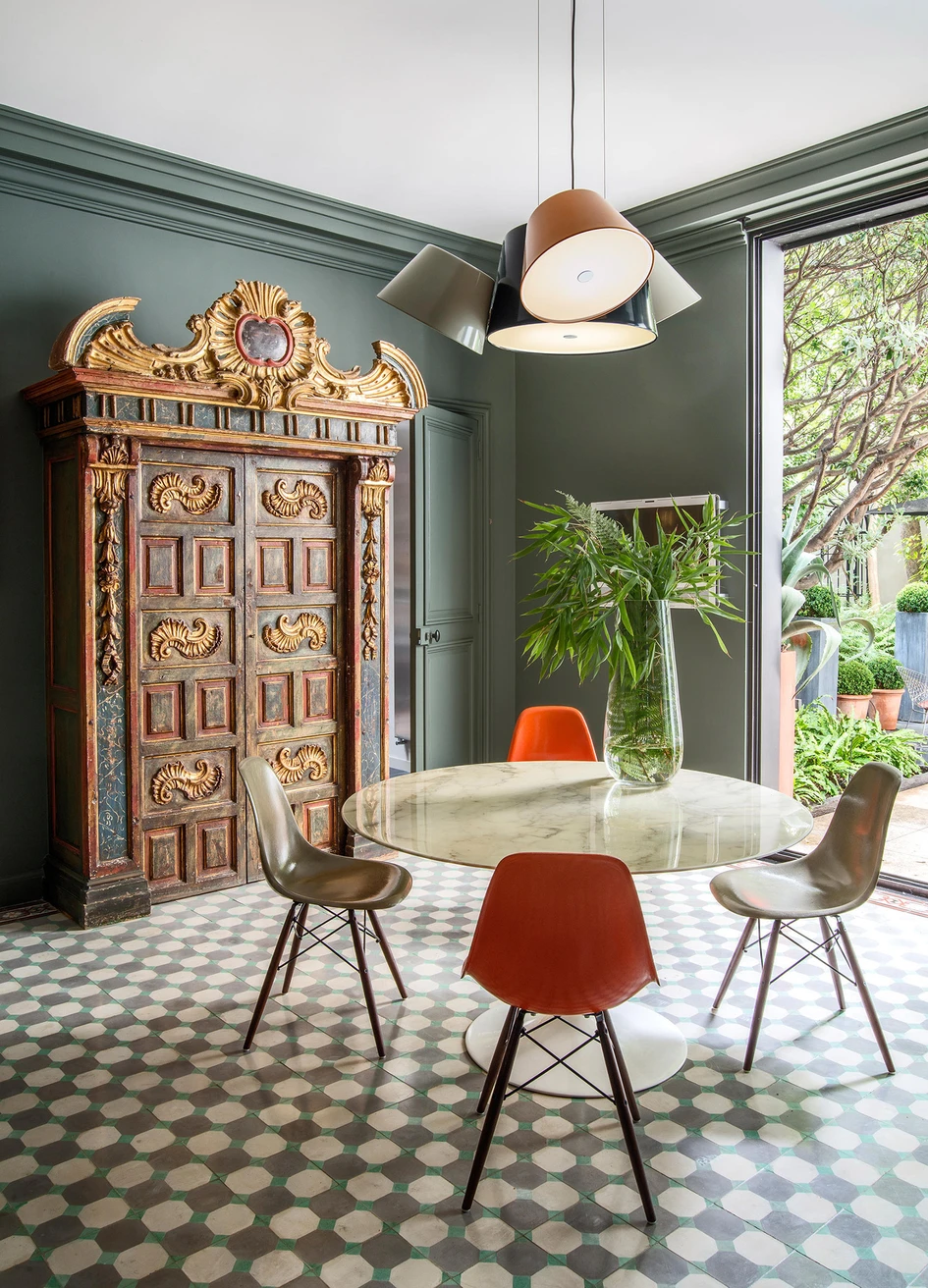
Tam Tam pendant by Marset
With walls and ceilings a long way away, often the most practical way to control the placement of a light source and the positioning of light, is to drop it into the exact position where it’s required, with a pendant light.
Even designer pendant lighting can be as simple or as complex as the project’s parameters call for. From the most intricate sculptures of glass or mechanical puppetry, to a single bulb on a cord, here are seven types of pendant light, and the purposes and projects for which they’re best suited:
Shaded pendant lights
With a huge range of styles, sizes, cords and functions, the shaded pendant light is the most expansive category of pendant lighting. So, if you’re searching for something eye-catching and creative, but which also uses its frame to play with emitted light patterns, such as Le Klint’s Swirl light, or even the ceramic Bride pendant by mammalampa, it’s easy to find something stunning that fits a designer’s wildest creative impulses.On the simpler side, there are many minimalist options like the clean lines of Anglepoise’s Type 80 pendant, whose separated housing creates a halo effect of escaped light. Or even something a little more functionally interesting, like Baltensweiler’s dual-aspect Fez pendant series, which provides both 70 degrees of downwards accent light and 130 degrees of upwards ambient glare-free light. With fine adjustable wires and a 50 degree pivoting head, Fez is both flexible and directional.
Lantern pendant lights
Inspired by caged gaslights from centuries gone by, these fashionable lights combine vintage and contemporary style. Either in glass-housed frames or left completely clear for a truly minimal look, they come in right-angled cubes or cuboids, such as Dice by Seer or in more interestingly geometric polyhedrons like Nathalie Dewez Lighting’s Prism.Brassie, from Ronda design, meanwhile, goes a step further as it strives for the most minimal minimalism, by removing the bulb from the stage, entirely. Instead, the brass cage of exhibited, unaccompanied air is lit by an LED panel in the structure’s ceiling, offering an extremely striking and artful take on the genre.
Linear pendant lights
Suitable for spaces in need of longer geometries of light, such as rectangular dining, seating or working areas, linear lighting is perfectly suited to multiplied application for contract use. As a nod to this heritage in office ceilings, Bath A from Alma Light takes the form of a long fluorescent tube. With LED light, however, Bath A gives a stronger, more even light throughout the length of its housing.Contract areas across further distances can even combine linear lights, like H. Waldmann’s IDOO.line or IDOO.pendant systems, to extend the lighting path as far as the user requires. More creative options are available, of course, with various colours and materials offering linear shaded pendants, but the Q.aureool pendant by QC lightfactory really turns the category on its head, by turning the light around. By curving a linear light into itself to form a neat circle of light, Q.aureool is perfect for use in wide, circular meeting, dining and socialising spaces.
Multi-light pendant lights
Multi-light pendants can be separated into three distinct subcategories themselves.Linear multi-light pendant lights
The first is similar to the linear pendant as it spreads multiple lights across the length of its form, like this linear version of the aforementioned Fez collection, which controls its pendant children like a bar above a marionette. Or like the Tam Tam pendant by Marset, which attaches adjustable shades to a pendant bar.Grouped multi-light pendant lights
The second subcategory of multi-light pendant groups the bulbs together into the same form, giving a wider, even area of light. The effect is demonstrated by the multiple frosted globes of the Network Chandelier by Hudson Valley Lighting, itself bringing wonderfully suitable art-deco stylings to larger spaces such as retro hotel foyers and restaurants.Clustered multi-light pendant lights
This style allows the pendant lights to settle into their own, gravity-defined formations. Examples such as the Jamz hanging lamp from Lladro or the Cono 6 suspension by Zava epitomise how otherwise simple shaded pendants can be clustered to form special collections deserving of their own collective noun.Cord pendant lights
Sometimes it’s best not to overthink it, however, and even a single bulb on the end of a cord can bring a level of style and even sophistication to projects. Cord pendants can be a bold statement of a designer’s trust in their project’s minimalism. But when positioned well and even perhaps multiplied into larger feature installations, cord pendants such as Tom Kirk Lighting’s Cintola pendants, with the choice of hand-blown glass diffusers in seven vibrant colours, can still draw attention.By stripping everything away to just the cord and connector, options like the Thorn Pete from Tekna, with its brass-plated lamp holder and metal-covered cable, have a vintage style. While the Base family from NUD also shows how the simple cord pendant’s use of designer bulbs can combine both subtlety and splendour, with a rustic iron or concrete lamp holder.
© Architonic
Project Gallery
